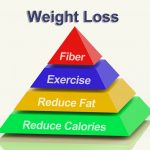Are you looking to improve your overall health and well-being? One of the most effective ways to do so is by creating a personalized nutrition plan.
By assessing your individual nutritional needs, setting realistic health goals, choosing nutrient-dense foods, incorporating physical activity, and tracking your progress, you can optimize your health and achieve long-term success.
Assessing your individual nutritional needs is the first step in creating a personalized nutrition plan. This involves taking into account factors such as age, gender, weight, height, activity level, and any medical conditions or dietary restrictions you may have.
Once you have a clear understanding of what your body needs in terms of nutrients and calories, you can begin making informed decisions about what to eat and how much to eat.
With the right approach and guidance from healthcare professionals or registered dietitians/nutritionists (RD/Ns), you can create a sustainable nutrition plan that supports optimal health for years to come.
Assessing Your Individual Nutritional Needs
 Assessing your unique nutritional requirements is crucial to determine the most effective dietary approach for your body.
Assessing your unique nutritional requirements is crucial to determine the most effective dietary approach for your body.
Every individual has different nutritional needs that depend on various factors such as age, sex, weight, height, physical activity level, and overall health status.
Additionally, dietary preferences and lifestyle factors play a significant role in creating a personalized nutrition plan.
To assess your nutritional needs accurately, you can start by keeping track of what you eat every day using a food diary. This will help you identify any potential deficiencies or excesses in your diet.
You can also use online tools or consult with a registered dietitian who can analyze your eating habits and provide tailored recommendations.
In addition to analyzing your dietary intake, it’s essential to consider lifestyle factors that may influence your nutritional requirements.
For example, if you have an active job or exercise regularly, you may need more protein and carbohydrates than someone who leads a sedentary lifestyle.
Overall, assessing your unique nutritional needs requires careful consideration of both dietary intake and lifestyle factors to create an effective personalized nutrition plan that promotes optimal health.
Setting Realistic Health Goals
To set achievable health goals, you should make sure they’re realistic and align with your lifestyle and habits. Studies show that only 8% of people actually achieve their New Year’s resolutions.
Creating accountability is one way to ensure you stay on track towards achieving your goals. This can be done by sharing your goals with a friend or family member who’ll hold you accountable, joining a support group, or hiring a professional like a nutritionist or personal trainer.
Celebrating small victories along the way can also help keep you motivated and committed to reaching your overall goal. For example, if your long-term goal is to lose weight, celebrate when you reach smaller milestones such as losing 5 pounds or sticking to a healthy eating plan for a week. These achievements will give you confidence in yourself and reinforce the positive changes you’re making towards optimal health.
Remember that setting realistic health goals isn’t about perfection but rather progress. It may take time to see results, but staying consistent with healthy habits will pay off in the long run. By creating accountability, celebrating small victories, and staying committed to your personalized nutrition plan, you can achieve optimal health for life.
Choosing Nutrient-Dense Foods
You can choose foods that are packed with nutrients to improve your overall health and well-being. Superfoods selection is a great way to start incorporating nutrient-dense foods into your diet.
Some examples of superfoods include blueberries, kale, salmon, almonds, and avocado. These foods are rich in vitamins, minerals, antioxidants, and healthy fats that can benefit your body in many ways.
Nutrient-packed meals should also include a variety of whole foods such as fruits, vegetables, lean proteins, whole grains, and healthy fats. Eating a rainbow of colors on your plate ensures that you’re getting different types of phytonutrients that help protect against chronic diseases like cancer and heart disease.
When choosing protein sources, opt for lean options like chicken breast or fish instead of red meat to reduce saturated fat intake.
In addition to food choices, it’s important to pay attention to portion sizes and balance your macronutrients (carbohydrates, protein, and fat). Aim for a balanced plate with 1/2 veggies or fruits + 1/4 lean protein + 1/4 complex carbs or whole grains + a small serving of healthy fat (such as olive oil or nuts).
By making these small changes in your food choices and meal planning habits over time, you’ll be able to see the benefits in improved energy levels and overall health.
Incorporating Physical Activity
Get your body moving and grooving to the beat of a healthy heart with some simple exercises that’ll make you feel like a superhero.
Physical activity is an essential part of any personalized nutrition plan for optimal health. Fitness routines and active lifestyle habits help improve cardiovascular health, boost metabolism, and strengthen muscles and bones. Incorporating physical activity in your daily routine doesn’t have to be complicated or time-consuming.
To start, aim for at least 30 minutes of moderate-intensity exercise five days a week. You can achieve this by brisk walking, cycling, swimming, or dancing. If you prefer high-intensity workouts, try interval training that alternates between short bursts of intense exercise and periods of rest. For strength training, use resistance bands or weights to work on major muscle groups such as legs, arms, back, chest, and core.
In addition to the physical benefits of staying active, regular exercise has been shown to reduce stress levels and improve mental well-being. It also promotes better sleep quality and helps maintain a healthy weight.
So put on your favorite workout clothes and get ready to sweat! Remember that every step counts towards achieving your fitness goals as long as you keep moving forward with consistency and dedication.
Tracking Your Progress and Making Adjustments
Tracking your progress and making adjustments is crucial for maintaining a successful personalized nutrition plan. Using technology can be an excellent way to help keep track of goals and progress.
There are many apps available that can help you monitor your food intake, exercise routine, and weight loss or gain. These apps provide valuable information that can help you make informed decisions about what foods to eat, how much to eat, and when to eat them.
Seeking professional help is also a great way to track your progress and make necessary adjustments. A registered dietitian can analyze your current eating habits and create a personalized nutrition plan based on your specific needs.
They can also provide guidance on how to modify the plan as needed to achieve optimal health. Working with a personal trainer or fitness coach can also be beneficial in tracking physical activity progress. They can monitor performance, suggest modifications, and offer support along the way.
Remember that tracking progress isn’t just about reaching a certain number on the scale or lifting heavier weights at the gym—it’s about improving overall health and well-being. Adjustments may need to be made along the way as you learn more about what works best for your body.
Celebrate small victories along the way, whether it’s trying new healthy recipes or completing an extra workout during the week. By tracking your progress and adjusting as needed, you’ll be well on your way to achieving optimal health through a personalized nutrition plan tailored specifically for you.
How do I determine the right amount of each nutrient I need on a daily basis?
Tracking your food intake is the first step towards determining the right amount of each nutrient you need on a daily basis. By keeping a record of what you eat, you can identify any gaps in your diet and adjust accordingly.
It’s also important to refer to dietary guidelines set by reputable organizations such as the USDA or WHO, which provide recommendations for daily intake of key macronutrients and micronutrients. These guidelines take into account factors such as age, sex, and physical activity level.
Keep in mind that everyone’s nutritional needs are unique, so it’s best to consult with a registered dietitian who can help create a personalized plan tailored specifically to you. Think of it like finding your perfect fit – just as a shoe that fits one person may not fit another, your optimal nutrient intake will be different from someone else’s.
Can I still eat my favorite foods while following a personalized nutrition plan?
Balancing your cravings with a personalized nutrition plan is possible. You can still enjoy your favorite foods while making nutrient-dense swaps.
For example, if you’re craving pizza, instead of ordering one with extra cheese and pepperoni, opt for a veggie-packed option with whole-grain crust and less cheese. This way, you can satisfy your cravings while getting the necessary nutrients your body needs to function optimally.
Remember that balance is key when it comes to following a healthy nutrition plan, so don’t deprive yourself of the foods you love, but rather make smart choices and swap out ingredients to make them healthier.
How do I know if I am getting enough vitamins and minerals in my diet?
To ensure that you’re getting enough vitamins and minerals in your diet, it’s important to keep track of the foods you eat.
Food tracking can help identify any nutrient deficiencies and allow for adjustments to be made in your diet.
Some common signs of nutrient deficiency include fatigue, weakness, a weakened immune system, and frequent illness.
However, it’s important to consult with a healthcare professional before making any drastic changes to your diet or taking supplements.
Additionally, incorporating a variety of colorful fruits and vegetables into your meals can help provide a range of essential vitamins and minerals.
What are the best ways to stay motivated and stick to my personalized nutrition plan?
Imagine you’re a gardener trying to grow a beautiful garden. You start by setting goals for what plants you want to grow and how you want your garden to look.
But setting goals isn’t enough, you need to build habits that’ll help you achieve those goals. It’s the same with your personalized nutrition plan.
Setting goals is important, but building habits is what’ll keep you motivated and on track. Start small with one healthy habit at a time, like drinking more water or adding more vegetables to your meals.
Celebrate every small success along the way and don’t be too hard on yourself if you slip up. Remember, building healthy habits takes time and effort, but it’s worth it for optimal health in the long run.
Are there any supplements or vitamins that I should be taking to support my overall health and wellness?
When considering taking supplements or vitamins to support your overall health and wellness, it’s important to weigh the benefits and risks.
While natural sources of nutrients are preferable, synthetic versions can also provide necessary nutrients.
Timing and dosage are crucial factors in ensuring that you are getting the most out of your supplements without risking any adverse effects.
Additionally, it’s important to be aware of any potential interactions with medications you may be taking.
It’s always best to consult with a healthcare professional before adding any new supplements or vitamins to your routine.
By assessing your individual nutritional needs, setting realistic health goals, choosing nutrient-dense foods, incorporating physical activity and tracking your progress, you’re on your way to achieving your desired level of health and wellness.
It’s important to note that everyone’s nutritional needs are different and may require adjustments along the way. Therefore, it’s crucial to continue tracking your progress and making adjustments as needed.
Remember, a healthy lifestyle isn’t just about what you eat or how much you exercise; it’s about creating sustainable habits that support overall well-being.
Keep up the good work and enjoy the benefits of a healthier life!









